DRI sleuths seize foreign cigarettes, gold; 9 held.
Foreign origin cigarettes and gold worth Rs 7.11 crore besides Red sanders and endangered shells were seized over the last six days in different cases and nine people arrested in this connection, DRI officials said here Wednesday. DRI sleuths seized 7.9 kg of gold worth Rs 2.61 crore from two passengers who arrived from Assam at the Chennai Egmore Railway Station Wednesday. The duo allegedly smuggled the gold across the India-Myanmar border by concealing it in specially made pockets stitched to their clothes, a Directorate of Revenue Intelligence (DRI) release said. Foreign cigarettes, which are prohibited for import and sale under the Customs act, were seized from Chennai port on May 2. The cigarettes, concealed in cartons, were declared as diapers.
Lear More
Johor Customs seizes RM2.1mil in contraband following three raids.
JOHOR BARU: The Customs Department seized more than RM2.1mil worth of smuggled fireworks, cigarettes and liquor in a series of raids in Taman Bukit Indah and Kulai here. State Customs director Datuk Mohammad Hamiddan Maryani (pic) said the contraband was confiscated from May 3 to May 6 at three different locations. “The first seizure was made during a raid at 2.45pm last Friday (May 3) at a two-storey house at Jalan Indah, Taman Bukit Indah, where we found liquor, fireworks, and cigarettes. “The Customs team found 3,854 litres of beer, 1,509 litres of imported liquor, and 372 litres of local liquor aside from 704kg of fireworks and 383,600 sticks of cigarettes. “The confiscated items are worth RM79,719 with tax valued at RM461,917,” he said. Mohammad Hamiddan was met by reporters at a press conference at Menara Kastam Johor Baru here on Tuesday (May 7).
Lear More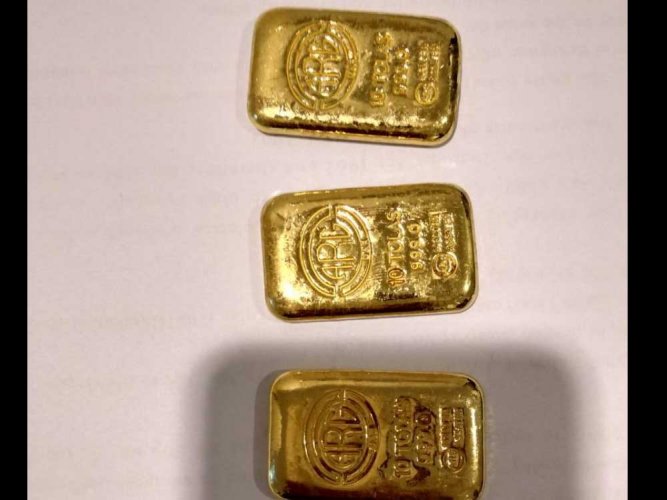
Airport employee held for smuggling gold worth 3cr.
A contract employee of Trivandrum International Airport was held for smuggling about ten kilograms of gold, worth about Rs 3 crore. Five ground handling employees on contract at the airport were also held earlier this month for gold smuggling. The modus operandi of the racket is that carriers posing as passengers would bring the gold from Gulf countries and it was then handed over to the ground handling employees at the airport. The ground handling employees would smuggle it out of the airport evading customs checks. The one held on Tuesday was identified as Anish, who was working as an air conditioner mechanic. Airport CISF security officers found Anish in suspicious circumstance and he even tried to run away. But he was held and handed over to the air customs officials at the airport.
Lear More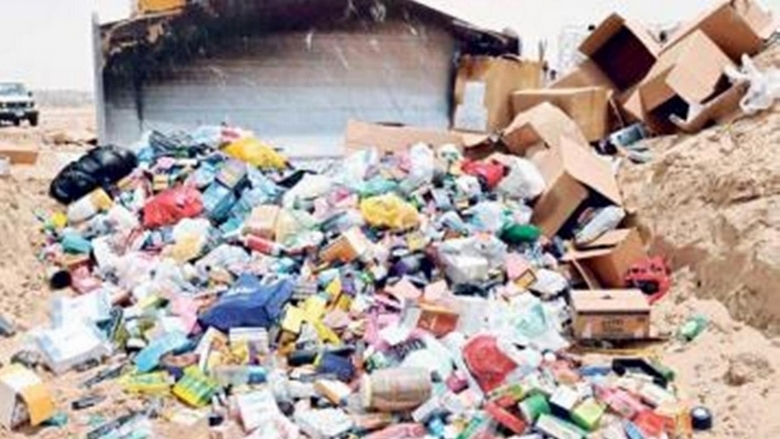
Dh63 million fake products seized in Dubai.
Dubai Customs has foiled 340 attempts to smuggle fake goods, worth Dh63 million, in the last 15 months. These include 68 seizures in the first quarter of this year, said Ahmed Mahboob Musabih, Director General of Dubai Customs. “The competent staff of Dubai Customs seized up to 23,000 duplicate products of 16 trademarks, valued at Dh11 million, over the period from January 1 to March 31 this year.” As many as 272 attempts to smuggle counterfeit products, worth Dh52 million, were foiled in 2018, he said, adding, “Fake goods are harmful to the environment and dangerous to all users”. Hatem Abdelghani, director of Intellectual Property Department at Legal Group, earlier told Khaleej Times that at least 25 million counterfeit products are seized in UAE every year.
Lear MoreCounterfeit goods worth 50 mln yuan destroyed in Hubei.
BEIJING, April 26 (Xinhua) — Counterfeit goods worth over 50 million yuan (about 7.46 million U.S. dollars) were destroyed Friday in the city of Xianning, central China’s Hubei province. The goods, weighing more than 200 tonnes, included fake name brand items such as clothes, luggage, wines, daily chemical products and auto spare parts that had been seized in recent years. Among the goods were over 17,000 pairs of fake footwear which were confiscated by local authorities in 2017. Representatives from Nike, P&G, Moutai, and industry organizations were invited to witness the disposal of the fake and shoddy goods. The move shows the country’s resolve to crack down on the production and sale of counterfeit products and protect intellectual property rights, said an official with the State Administration for Market Regulation.
http://www.xinhuanet.com/english/2019-04/26/c_138012726.htm
Lear More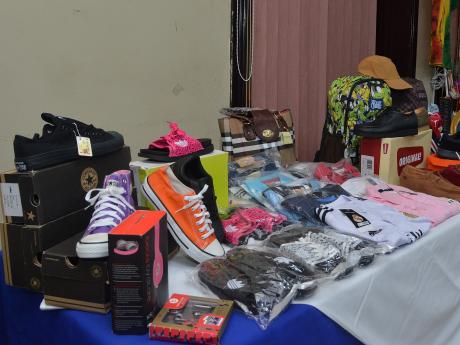
Police Destroy $2.6 Billion Worth Of Counterfeit Goods.
The police Counter Terrorism and Organised Crime Division (C-TOC) today destroyed just over $2.6 billion worth of counterfeit goods that were seized between 2012 and last year. At the same time, the Jamaica Customs Agency (JCA) has signalled that it is taking steps to dispose of nearly $6 billion worth of counterfeit goods that have accumulated at its warehouses in recent years. Dave Hanson, manager for the JCA’s Eastern Region Contraband Enforcement Team, said this includes $376.7 million worth of fake name brand items such as handbags, footwear, cigarettes and cigars that were seized last year. The other items were seized in previous years and are now stacked in over a dozen containers at JCA facilities. “We are not talking about chicken feed. These are significant sums that we have taken out of the pockets of criminals. These are significant sums that, when diverted, funds the underworld,” Hanson said.
http://jamaica-gleaner.com/article/news/20190425/police-destroy-26-billion-worth-counterfeit-goods
Lear More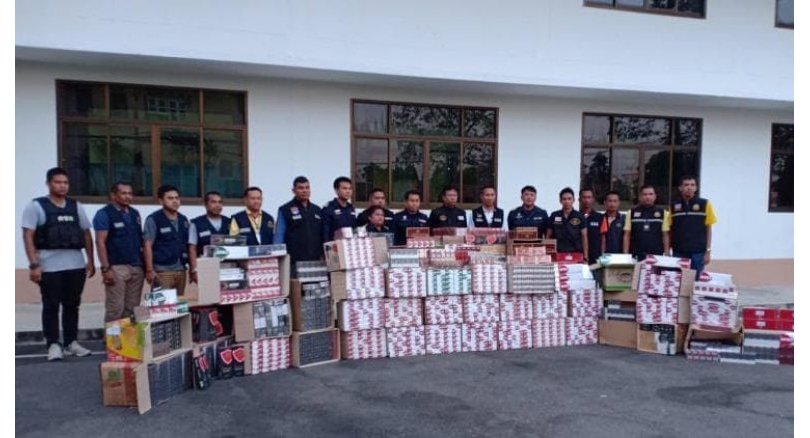
Pattani man arrested with huge haul of smuggled cigarettes
Police and Excise Department officials have arrested a man in Pattani’s Mayo district and seized 10,802 packets of foreign cigarettes.
Itthipol Liabyainak, who headed the team from Pattani’s Excise Office and Excise Office Region 9, held a press conference to announce the arrest of Yaman Pohleng, the owner of a grocery store in Tambon Sakhor Bon. Itthipol said the joint operation by Excise officials and border patrol police was carried out following tips-off that Yaman had allegedly opened the grocery store as a front for selling smuggled cigarettes. He said the seized cigarettes were worth about Bt10 million. Itthipol alleged that Yaman also used his grocery store as a hub for distributing the smuggled cigarettes to other shops in the area. He added that large quantities of foreign cigarettes were being smuggled through the three southern border provinces and that Excise officials would crack down on all the shops selling these illegal cigarettes.
http://www.nationmultimedia.com/detail/breakingnews/30368103
Lear More$15M Worth Of Counterfeit Products Seized In Vernon Bust.
In a raid in Vernon Thursday, authorities seized $15 million worth of counterfeit products in what is being called the largest such recovery of counterfeit goods ever on the West Coast. The multi-agency raid was conducted at a storage facility in the 4000 block of Alameda Street, the Los Angeles County Sheriff’s Department reports. The raid followed a six-month investigation in which investigators identified the storage unit as belonging to a large West Coast supplier and distributor of counterfeit goods. Several suspects were arrested in the raid, the sheriff’s department said. The exact number of suspects taken in to custody and their names were not released. The raid was conducted by members of the LASD Counterfeit and Piracy Enforcement Team, Los Angeles Police and Department of Homeland Security.
https://losangeles.cbslocal.com/2019/04/12/15m-counterfeit-products-vernon-bust/
Lear MoreBOC-Zamboanga seizes P35M worth of smuggled cigarettes.
The Bureau of Customs-Port of Zamboanga has seized P35 million worth of smuggled cigarettes in a recent operation with Armed Forces of the Philippines (AFP), Philippine Navy, and Philippine Coast Guard (PCG). In a statement on Thursday, the BOC said the contraband cigarettes were seized in the vicinity waters off Lower Calarian, Zamboanga last April 9. The bureau said the recent operation is the biggest in the Port of Zamboanga’s history. Port of Zamboanga district collector Segundo Barte Jr. said the collaborative effort is in compliance to the directive of Customs Commissioner Rey Leonardo Guerrero to intensify anti-smuggling operations in the ZAMBASULTA (Zamboanga, Basilan, Sulu and Tawi-Tawi) area. Barte said the operation stemmed from the intelligence report forwarded by the BOC-Intelligence Group on April 7 from Zamboanga residents.
Lear More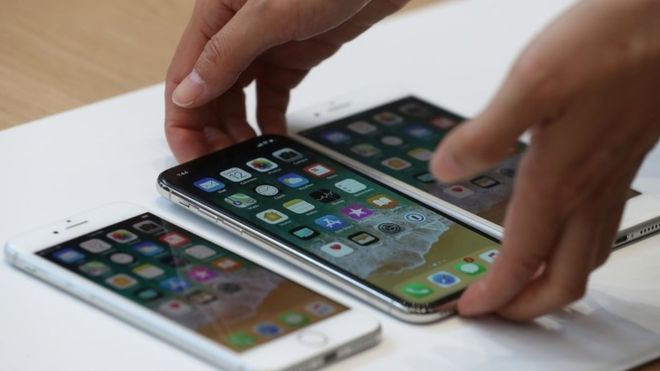
Men accused of $1m fake iPhone scam.
Two Chinese men studying in the US are accused of netting nearly $1m (£765,000) by sending “broken” fake iPhones to Apple for repair and getting official handsets in return. According to a criminal complaint filed last month, the counterfeit phones were shipped from China and the replacements were sent back there and sold on. Almost half of the fake iPhones were replaced with genuine ones. Both men claim they were unaware that the faulty phones were fake. Apple calculated that it lost $895,800 (£684,758) as a result of the alleged scam. Zhou Yangyang and Jiang Quan, students at Oregon State University, are named in the complaint. Both are Chinese citizens on student visas. The alleged scam was uncovered after customs officers opened five suspicious packages en route from Hong Kong, which appeared to contain counterfeit iPhones.
https://www.bbc.com/news/technology-47867091
Lear More


